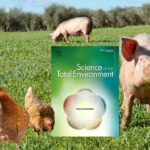
DGCCRF controls nano silver in textiles in France
The General Directorate for Competition, Consumer Affairs and Fraud Control (DGCCRF) has announced that it will conduct an investigation in 2021 into so-called “technical” textiles1Technical textiles: between innovation and overbidding, DGCCRF, 3 June 2022. Its conclusions highlight an overkill in the use of commercial claims (resistance, fireproof, anti-stain, anti-UV, etc.) and a tendency to exaggerate the real benefits provided by the products.
In particular, two of the six antibacterial or “anti-odor” products analyzed were treated with silver nanoparticles which are in the process of being classified because of their risks… and without this information being made available to consumers, which is contrary to what is required by the Biocide Regulation.
Following the DGCCRF’s investigation, the two operators marketing these two products withdrew them from the market.
No information was given on the precise brands and references of the said products.
To our knowledge, these are the first controls by the French public authorities on the presence of nanoparticles in textiles.
As for the controls of the [nano] labeling in cosmetics or food, France is a pioneer in this field compared to its European neighbors.
As a reminder, one of the first reports to alert on the subject was from Afsset (ancestor of Anses) which, in 2010, pointed out the absurdity of products such as socks with nano-silver with nanoparticles disappearing when washed (even though nanoparticles are known for their harmful effects on aquatic fauna)2Cf. Evaluation of the risks associated with nanomaterials for the general population and the environment, Afsset (now ANSES), March 2010.
Will other products be tested in 2022? In France as well as in other European countries?
To be continued…
Our latest news
Our information sheets to go further
Upcoming Nano Agenda
- Introductory seminar on the principles of Life Cycle Assessment (LCA) and its specificities when applied to nanomaterials (metal nanoparticles, oxides, etc.), from their production to their end-of-life.
- Organizer: NaMasTE research group (Manufactured Nanomaterials, Toxicology, Ecotoxicology and Risks: Towards Controlled Development)
- Speaker: Gaetana (Tania) Quaranta, Senior Lecturer, University of Strasbourg – IPHC
- Website: https://gdr-namaste.cnrs.fr/

- Webconference for analysis laboratories, plant fertilizer manufacturers and distributors, public authorities…
- Moderated by David Krupka, nanotechnologies development manager at AFNOR Normalisation and Emilie Langlois-Bertrand, nantechnologies standardization project manager.
- In partnership with Armand Masion (CEREGE) and Patrice Charpentier (ANSES).
- This exchange will also be an opportunity to explore the creation of a national platform to identify standardization needs.
- Website: https://www.afnor.org/evenements/qualite/nanotechnologies-agriculture-cadre-pratique-responsable

- International conference on metallic nano-objects for experts working in the interdisciplinary field of metallic nanoparticles, with a particular emphasis on nanoparticle synthesis and characterization, plasmonics, optics and photonics, catalysis, biomedicine, electronics, and nanoparticle recycling
- Organizers / Partners: CNRS, Bordeaux University, Bordeaux INP, ICMCB, CRPP, CBMN, ISM
- Website: https://mno2026.sciencesconf.org
Notes and references
- 1Technical textiles: between innovation and overbidding, DGCCRF, 3 June 2022
- 2Cf. Evaluation of the risks associated with nanomaterials for the general population and the environment, Afsset (now ANSES), March 2010



